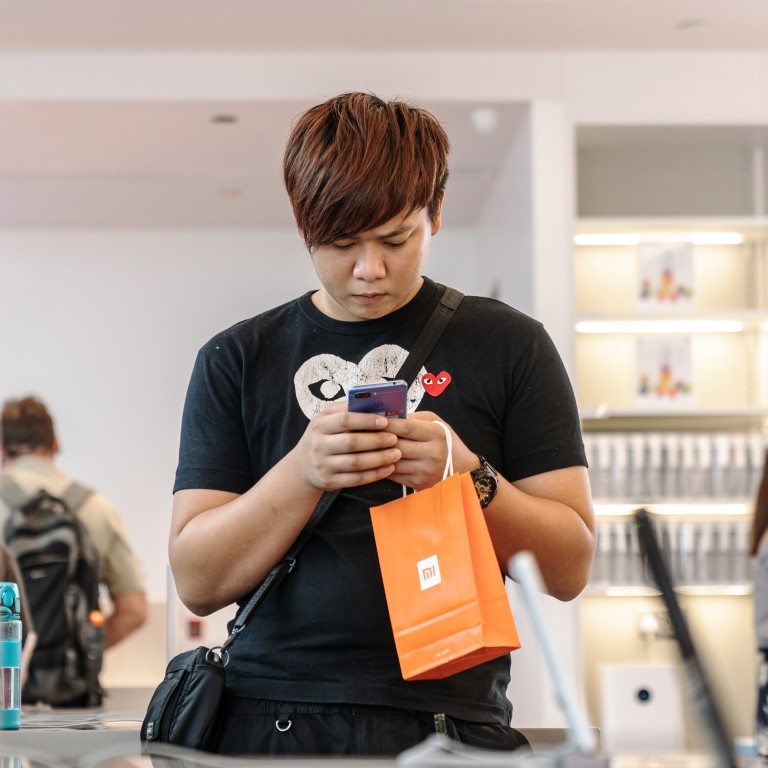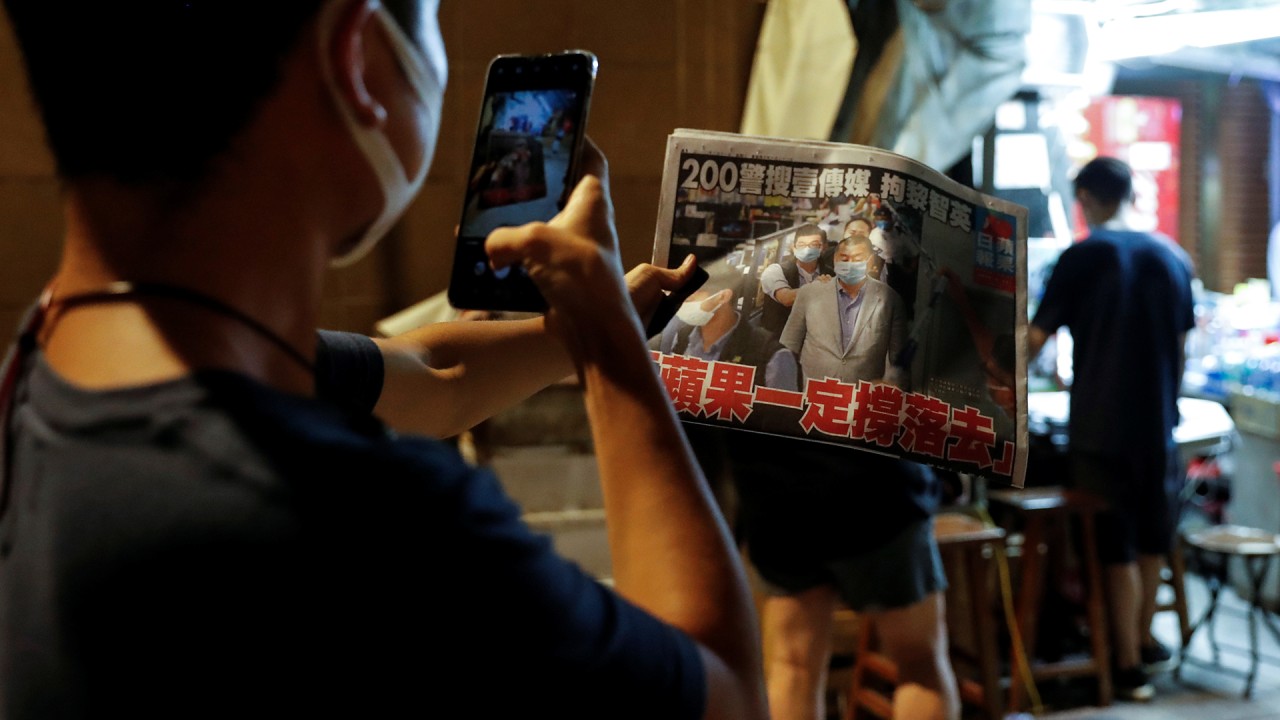
Xiaomi’s spectacular gain outshines Alibaba and Wuxi Biologics in first week since trio tapped for Hang Seng Index
- Xiaomi shot up more than 18 per cent in first week since announcement it would be added to the benchmark
- The three stocks falling off the index – Want Want China, Sino Land and China Shenhua Energy – posted weekly declines
To make room for the newcomers, three laggards are being kicked out of the 50-stock index: snack maker Want Want China Holdings, Hong Kong property developer Sino Land, and coal miner and electricity generator China Shenhua Energy. All three lost ground last week.
Over the week, Xiaomi’s 18.4 per cent gain tied its performance for the week ending July 10, making them its best weeks since its first week after debuting two years ago. The number of Xiaomi shares changing hands this past Monday – the first session of trading after the announcement – was three times higher than on the previous Friday. And, according to stock exchange data, Xiaomi saw heavy buying from mainland investors over the week.
“They are likely to go up … I think they would still go up towards that [inclusion] day,” Alex Wong, director of asset management at Ample Capital, said of the prospects of Xiaomi, Wuxi Biologics and Alibaba in the run-up to September 7.
“[We] see a round of buying before the addition,” said Wong. “And then, after the addition, it really depends on fundamentals. … I think Alibaba may be the best one to own, and would have some upside later on. I think Wuxi and Alibaba actually would still outperform after addition.”
To be sure, other factors besides their upcoming inclusion were in play for the trio this week.
Alibaba, which trades in Hong Kong and the US, posted blowout June quarter results after market close Thursday, but had a subdued week overall as US President Donald Trump turned up the heat on US-listed Chinese companies.
Wuxi Biologics got a boost from its strong first-half results, delivered after market close on Monday.
Meanwhile, Xiaomi benefited from Trump’s tightening of the screws on rival Chinese tech giant Huawei and its suppliers over the week, analysts said. More volatility is likely ahead this coming week as Xiaomi reports its most recent quarterly results on Wednesday.
Of the three being dropped, Want Want fell the most last week – 7.7 per cent, while Sino Land lost 4.3 per cent and China Shenhua Energy slipped 2.2. per cent. Sino Land reports earnings on the coming Wednesday, while Shenhua Energy reports on Friday.
The Hang Seng Index posted a teensy 0.3 per cent loss for the week.
The index’s shake-up is the biggest since mainland companies listed in Hong Kong – known as H-shares – were added in 2006 and reflects the broader Hong Kong market’s transformation towards new economy and biotech companies versus old economy stalwarts like local property developers, banks and casinos.
Alibaba and Xiaomi will be the first companies with weighted voting rights (WVR) or a secondary-listing to be added to the Hang Seng Index. Some US$19 billion of passive managed funds track the index, according to Goldman Sachs.
The reshuffling will tilt the index a bit more towards mainland China companies, which will account for 59 per cent of its market cap, up from 55 per cent, Goldman Sachs estimated.
The result of the shake-ups will lead to passive fund inflows of US$1.3 billion into Alibaba, US$700 million into Xiaomi, and US$300 million in each of WuXi Biologics and Meituan Dianping, according to estimates by Bruce Pang, head of macro and strategy research at China Renaissance Securities Hong Kong.

02:22
After arrest of media mogul Jimmy Lai, supporters flock to buy Apple Daily and company shares soar
“We think investors will have stronger interest [and] sentiment and therefore [create] higher turnover on the new joiners, while the leavers would face more headwinds from sentiment rather than from their already light trading volumes,” Pang said.
The Hang Seng Index started with 33 stocks a half-century ago and is expected to eventually expand beyond its current 50 members.
“The three stocks being added will keep going up in the future after they join the HSI because their fundamentals are good,” said Stanley Chan, director of research at Emperor Securities. “ … We expect the tech sector and O2O [online to offline] services will be even stronger after the pandemic.”
Between the announcement and implementation day, 13 of those 15 stocks gained. Yet one year after they were dyed blue, just five were trading above what their prices had been on inclusion day.
Will this time be different, driven in part by investors’ huge appetite for tech stocks?
Wong of Ample Capital says the index’s shuffling will be a milestone marking a huge transformation that should help make the Hong Kong stock market more attractive to international investors. The Hang Seng Index has fallen 11 per cent this year, a stark contrast from the US S&P 500, which has risen 5.2 per cent. Meanwhile, while the tech index is new, a look at the 30 stocks that it tracks over 2020 shows they have gained 52 per cent.
“We have been a Hong Kong market that is basically transforming into a knowledge based or new economy stock market,” Wong said.
“So foreign investors actually may not know that we have a very strong performing sector in Hong Kong, like biotech and IT … We need the index to tell people that actually we are performing. So that’s why we need to change,” Wong added.


